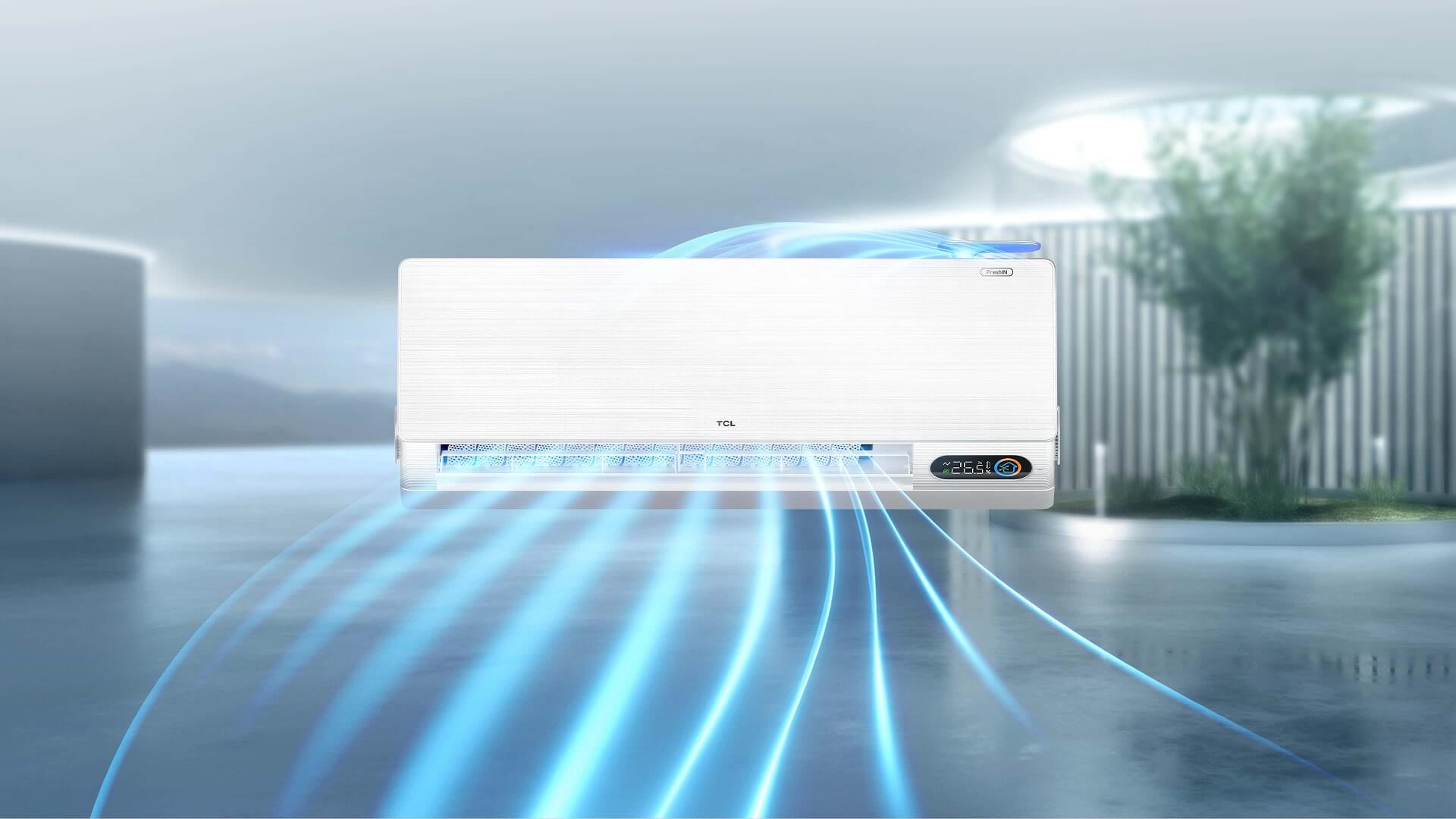As temperatures rise, ensuring your air conditioner functions optimally becomes imperative. One vital yet 、often neglected aspect of AC maintenance is cleaning the drain line. A blocked drain line can result in water damage and reduced efficiency. In this article, we will teach you how to clean air conditioner drain line to keep it clear. With proper care, you can prevent costly repairs and enjoy uninterrupted cooling all summer long.
What is an AC drain pipe?
An AC drain line, also known as a condensate drain, is a critical component of both residential and commercial air conditioning systems. Its primary function is to channel condensation from the air conditioner's evaporator coil to the outside. This condensation forms when the air conditioner cools the air, causing moisture in the air to condense on the cold surface of the evaporator coil. The dain pipe ensures that this moisture is properly removed from the air conditioning system, preventing issues such as water damage to the system or the building, mold growth, or overflow problems in the drainage pan. This line typically consists of a PVC or flexible hose and is often located near the outdoor unit of your AC system.
How to know if the AC drain pipe is clogged?
If you notice any of these symptoms below, it might be time to check and possibly clear your AC drain pipe. Let’s have a look at them:
l Water leaks: Visible water leaks around the air conditioning unit, especially near the indoor handling unit, can be a clear sign of a clogged dain pipe.
l Musty smells: A musty or moldy odor near the AC unit can suggest stagnant water in the drain pan due to a clog.
l Overflowing drain pan: If the drain pan under your indoor air conditioner is full or overflowing, this is often due to a blockage in the dain pipepreventing water from flowing out.
l Visible mold: Mold growth near the AC dain pipe or exit point can occur when there is consistent moisture from a backup.
l air conditioner shuts off: Some newer AC systems have a built-in safety switch that turns off the air conditioner if it detects a clogged dain pipe to prevent water damage.
How to clean AC drain pipe?
If you find it necessary to clean your AC drain line, this comprehensive cleaning guide will help you. Follow these steps to effectively clean your air conditioner's drain line, keeping your system free of blockages and running smoothly.
Tools and materials
Before jumping into cleaning your AC drain line, it's crucial to ensure you have everything you need for a smooth process.
l Wet/dry vacuum
l Rags or cloths
l A funnel (if needed for your AC model)
l Vinegar or bleach
l A stiff brush
l Garden hose (optional, depending on the cleaning method)
Detailed Steps:
Step 1: Turn off air conditioner
Always start by turning off your air conditioner at the thermostat and the breaker. This prevents any electrical issues and ensures your safety while you work on the unit. It also stops the flow of water down the drain pipe, making your task easier.
Step 2: Find the AC drain line
The drain line is usually a white or black PVC pipe located near your outdoor unit. Follow it from the base of your indoor air conditioner unit to where it exits the house. This line carries condensation away from the air conditioner to prevent overflow and water damage inside.
Step 3: Locate the access point
Most systems will have a T-shaped vent with a cap on the drain line near the indoor cooling unit. This vent is usually located above the drain pan. Removing the cap will give you access to the drain line for cleaning purposes.
Step 4: Flush the drain line
Using a mixture of water and vinegar or bleach, flush the drain line. You can use a funnel to pour the solution directly into the line if it doesn’t have a natural slope. For tougher clogs, use a wet/dry vacuum on the end of the drain line outside the house to suck the clog out.
Step 5: Repeat the process (optional)
If your drain line was heavily clogged, it might be necessary to repeat the flushing process to ensure all debris is removed. Check the flow of water through the drain line to determine if additional cleaning is needed.
Now you can take advantage of the steps to clean your AC drain line. But that is only part of the work in cleaning the whole air conditioner. If you want to clean the whole model, you need to do more. That’s why you may need an AC featuring Auto Clean function. THE BreezeIN Series has 4-Step Auto Clean that uses water molecules in the air to remove dust, grime, and other pollutants. The auto program is an effective, simple, and superior approach to enjoying cleaner air. You only need to hit the button and it will do the rest of the work, saving you much time.
Preventive maintenance for a clean and clear Drain line
Preventive maintenance keeps your air conditioner's drain line functioning effectively. Here’s a detailed approach to ensure your AC drain pipe remains clear:
Monthly visual inspections
Regularly check the drain pipe for any signs of leakage or blockage. Visual inspection helps in the early detection of potential issues that could lead to bigger problems.
Bi-annual flush with vinegar
Vinegar is a natural option that avoids the harshness of chemicals. Twice a year, flush the drain line with vinegar to kill mold and algae, which are common causes of clogs.
Quarterly use of algae tablets
Drop algae prevention tablets into the drain pan every three months. These tablets prevent algae growth.
Ensure proper slope of drain pipe
Check that the drain line has the correct slope to facilitate water flow. Improper slope can lead to water pooling and eventually clogs.
Clean the drain pan
Regularly clean the drain pan to prevent dirt and debris accumulation, which can lead to clogged drain lines.
Professional annual check-ups
Schedule a professional HVAC technician to inspect and service your air conditioning system annually. They can handle complex checks and maintenance tasks that go beyond basic homeowner capabilities.
Conclusion
Maintaining a clean air conditioner drain line contributes to optimal AC performance and indoor air quality. After recognizing signs of clogging, and knowing how to clean air conditioner drain pipe, you can prevent potential issues and ensure efficient cooling throughout your home. Additionally, integrating preventive maintenance routines into your HVAC system care regimen can prolong its lifespan and minimize the risk of costly repairs. Remember, a well-maintained air conditioner not only keeps your home comfortable but also promotes a healthier indoor environment for you and your family.

QLED vs. UHD: Which TV Technology is Best?
2025-04-09

What AC Type is Used in Offices?
2024-12-19

How to Connect Universal Remote to TV?
2024-09-27

YouTube on TV Not Working, How to Fix?
2024-09-20

How to Watch Apple TV on Smart TV
2024-09-20

Discover the Best Washing Machines for 2024
2024-09-12

How to Measure a TV Screen for Perfect Fit?
2024-08-16

How to Clean Air Conditioner Drain Line?
2024-08-01

What is a backlight in an LED TV?
2024-06-18

How To Remove Lint From Clothes Washing Tips
2024-05-24

How Does The Refrigeration Cycle Work?
2024-05-10

How Does VPN Work On Smart TV
2024-05-10

How to Watch Free Live TV on Android TV
2024-05-06

How to Reset Your Air Conditioning Unit
2024-04-25

How to Open A Locked Washing Machine Door
2024-04-10

How To Get Disney Plus On TV: A Easy Guide
2024-04-10

Set Up Your OK Google Device On Your TV
2024-04-08

How To Adjust Your TV Picture to Fit Screen
2024-04-03

How To Convert Your LED TV To A Smart TV
2024-03-01

Tablet Vs Laptop – Which Should You Buy?
2023-11-24

How To Play Games On Smart TV
2023-11-16

How To Level A Washing Machine in Easy Steps
2023-11-11

How To Dispose Of An Old Refrigerator Safely
2023-10-29

How to Mount a TV on the Wall in Easy Steps
2023-10-14

Why Is My AC Not Blowing Cold Air? Easy Fix
2023-09-29

How To Wash Shoes In The Washing Machine
2023-09-28

How To Clean Your TV Screen In 6 Easy Steps
2023-09-26

3 Easy Methods on How To Reset your Tablet
2023-09-14

Dolby Digital Vs DTS: What's The Difference
2023-08-26

Washing Machine Capacity And Load Size Guide
2023-07-26

Ac Leaking Water? Here's How You Can Fix It!
2023-07-22

How To Take Care of a Cracked Phone Screen
2023-07-18

Who Invented Television: History of TV
2023-06-28

10 Smart Tips For More Organized Fridge
2023-06-16

Top 5 Best Browsers for Android TV
2023-05-20

How to Recover Deleted Photos on Android
2023-05-18

What Are the Big Changes for TCL TV in 2022?
2022-09-08

How TCL Smart TVs Enhance Your Life?
2022-08-10

Connection Guide For Your TCL SmartV TV
2021-03-17

Buying a TV? Which TV Should You Buy?
2021-03-17

Which Size TCL TV Is Best for You? | TCL UAE
2021-03-17

QLED v.s. OLED: Which one is better?
2021-03-17
Copyright © 2025 TCL. All Rights Reserved.
This site uses cookies to analyse site traffic, improve your experience and personalize ads or other contents. By clicking Accept or continuing to browse the site, you are agree to our use of cookies. See our Cookies Policy here. Learn more


































































































.jpg?t=1702449223212&w=592)








































































































